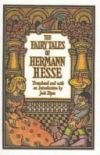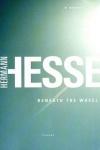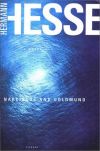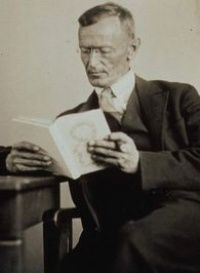
A collection of twenty-two fairy tales by the Nobel Prize-winning novelist, most translated into English for the first time, show the influence of German Romanticism, psychoanalysis, and Eastern religion on his development as an author.

Peter Camenzind, a young man from a Swiss mountain village, leaves his home and eagerly takes to the road in search of new experience. Traveling through Italy and France, Camenzind is increasingly disillusioned by the suffering he discovers around him; after failed romances and a tragic friendship, his idealism fades …

Journey to the East is a short novel by German author Hermann Hesse. It was first published in German in 1932 as "Die Morgenlandfahrt". This novel came directly after his biggest international success, Narcissus and Goldmund.

In Hermann Hesse's Beneath the Wheel, Hans Giebernath lives among the dull and respectable townsfolk of a sleepy Black Forest village. When he is discovered to be an exceptionally gifted student, the entire community presses him onto a path of serious scholarship. Hans dutifully follows the regimen of study and …

The Glass Bead Game, for which Hesse won the Nobel Prize for Literature in 1946, is the author’s last and crowning achievement, the most imaginative and prophetic of all his novels. Setting the story in the distant postapocalyptic future, Hesse tells of an elite cult of intellectuals who play an elaborate game that …

Hermann Hesse's Narcissus and Goldmund is the story of a passionate yet uneasy friendship between two men of opposite character. Narcissus, an ascetic instructor at a cloister school, has devoted himself solely to scholarly and spiritual pursuits. One of his students is the sensual, restless Goldmund, who is …

Demian: The Story of Emil Sinclair's Youth is a Bildungsroman by Hermann Hesse, first published in 1919; a prologue was added in 1960. Demian was first published under the pseudonym "Emil Sinclair", the name of the narrator of the story, but Hesse was later revealed to be the author.

Steppeulven er den tiende roman af den schweizisk-tyske forfatter Hermann Hesse. Romanen, der oprindeligt blev udgivet i 1927 indeholdt en række autobiografiske og psykoanalytiske elementer, og havde taget sin titel efter den ensomme grå steppeulv. Bogen er Hermann Hesses mest læste roman.

 English
English Español
Español Deutsch
Deutsch

